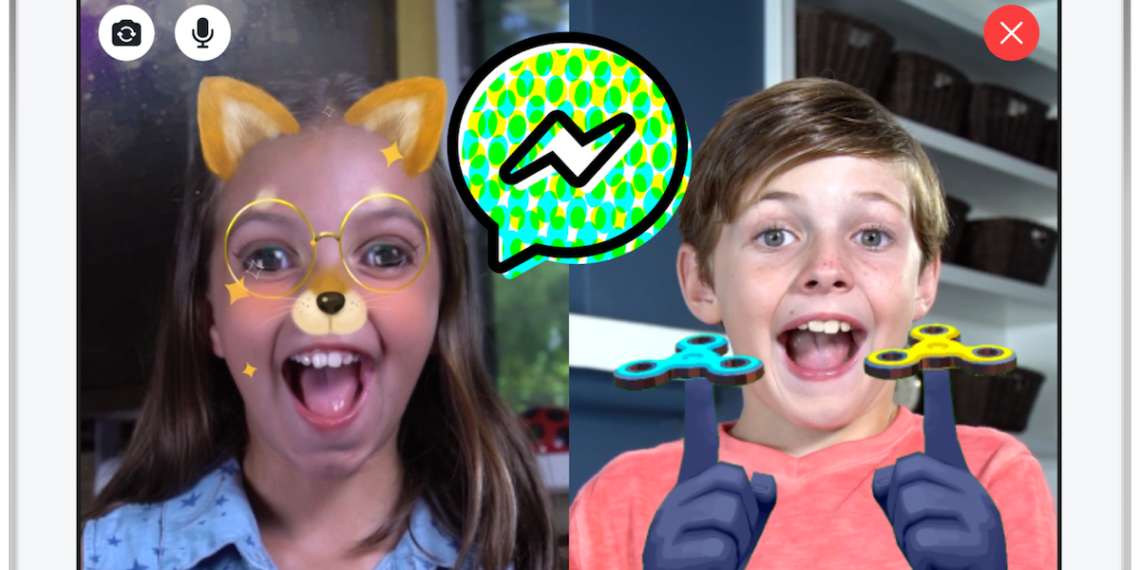
*The following is excerpted from an online article posted on TechCrunch.
For the first time, Facebook is opening up to children under age 13 with a privacy-focused app designed to neutralize child predator threats that plague youth-focused competitors like Snapchat. Rolling out on iOS in the U.S., “Messenger Kids” lets parents download the app on their child’s phone or tablet, create a profile for them and approve friends and family with whom they can text and video chat from the main Messenger app.
Tweens don’t sign up for a Facebook account and don’t need a phone number, but can communicate with other Messenger and Messenger Kids users parents sign-off on, so younger siblings don’t get left out of the family group chat. “We’ve been working closely with the FTC so we’re lockstep with them. ‘This works’, they said,” Facebook product management director Loren Cheng tells me. “In other apps, they can contact anyone they want or be contacted by anyone,” Facebook’s head of Messenger David Marcus notes.
Special proactive detection safety filters prevent children from sharing nudity, sexual content or violence, while a dedicated support team will respond quickly to reported or flagged content.
Facebook won’t be directly monetizing Messenger Kids, automatically migrating kids to real accounts when they turn 13 or collecting data so that it complies with Children’s Online Privacy Protections Act (COPPA) law. But the app could prime kids to become lifelong Facebook users, and lock their families deeply into the platform where they’ll see ads.
It’s important to understand that kids under 13 still can’t sign up for a Facebook account. Instead, parents download the Messenger Kids app to a child’s iPhone or iPad (Android coming soon). Once the parent has authenticated it with their own account, they set up a mini-profile with their kid’s name and photo. Then, using the Messenger Kids bookmark in the main Facebook app, parents can approve anyone who is friends with them as a contact for their kid, like aunts and uncles or godparents. Messenger Kids is interoperable with the main Messenger app, so adults don’t actually have to download the Kids app.
One thing that might surprise some people is that there’s no way for parents to secretly spy on what their kids are saying in their chats. Instead, parents have to ask to look at their kids’ screen, which Chung says is a more common behavior pattern. The exception is that if kids report a piece of objectionable content, their parents will be notified but still not shown the content in their own app.
While Facebook said in the briefing that the app was designed for kids age 6 to 12, younger kids are allowed on, too. When children turn 13, they won’t instantly have their Messenger Kids profiles turned into real Facebook profiles, nor will they get kicked off Messenger Kids. They’ll still have to build a traditional Facebook account from scratch when they’re ready.
Source: TechCrunch
https://techcrunch.com/2017/12/04/facebook-messenger-kids/
Source: Home Word






